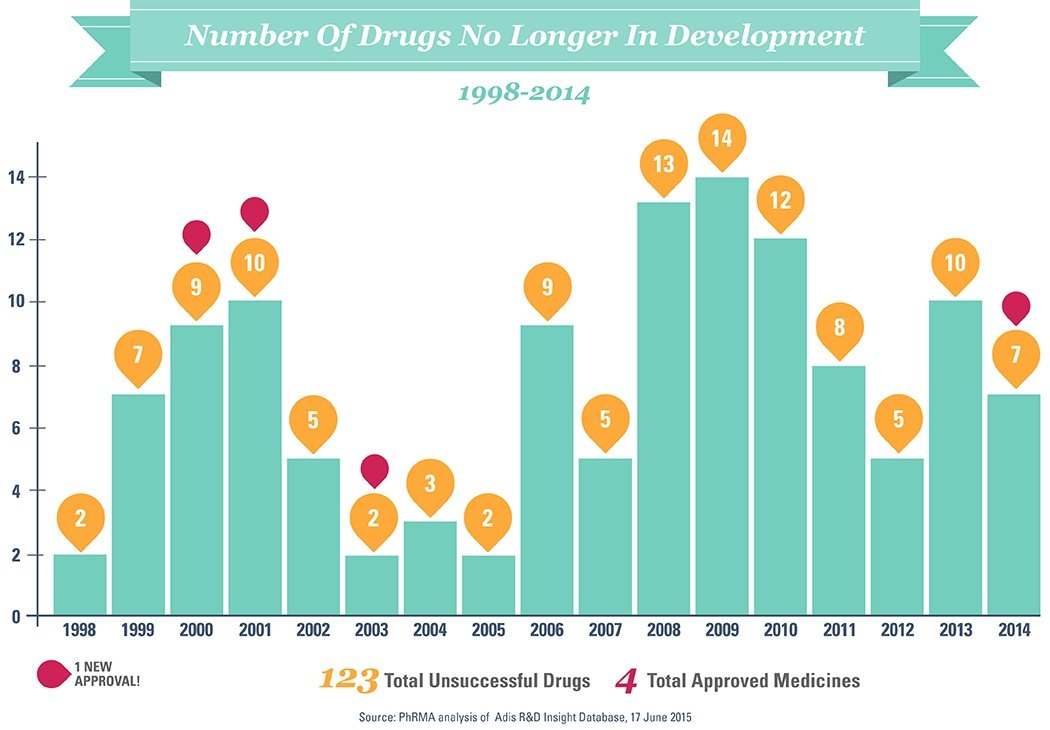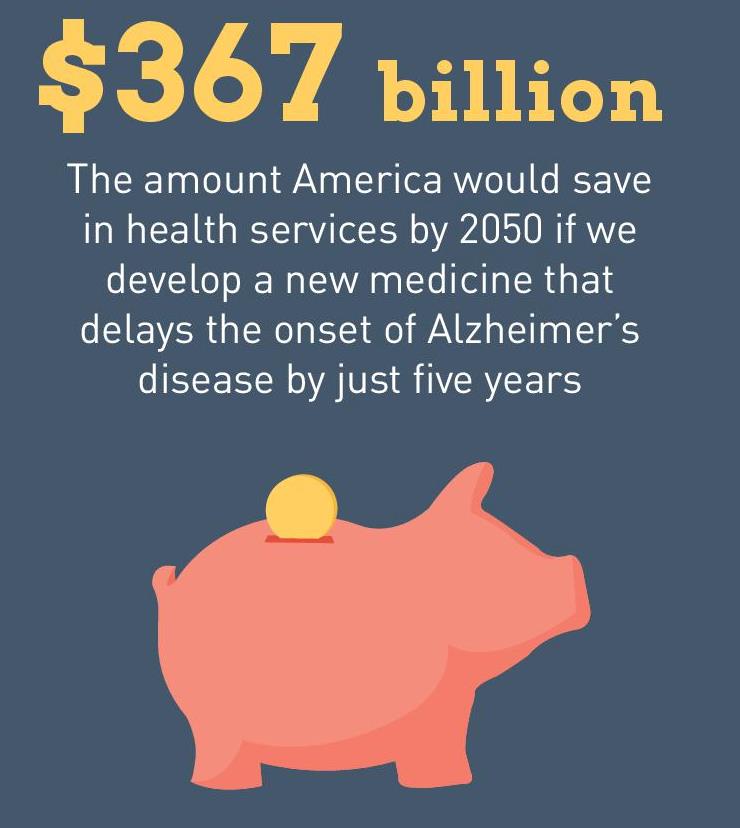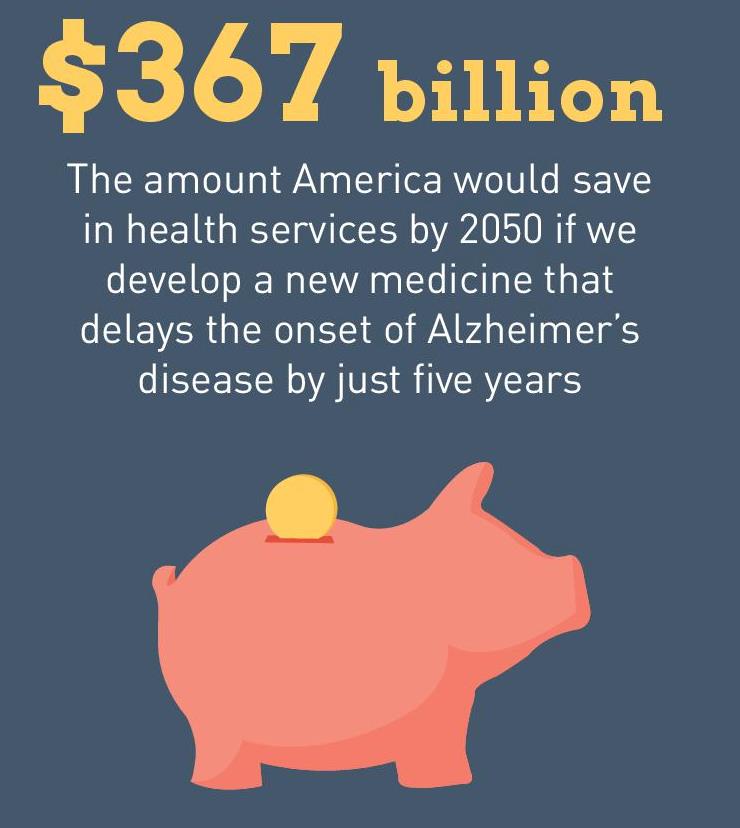This week, presidential candidate Hillary Clinton called for a spending increase by the federal government to find a cure to the costly and devastating Alzheimer’s disease. Finding a better treatment and cure for Alzheimer’s is also a top priority for biopharmaceutical companies who are already investing billions in the development of new therapies and working collaboratively with the Alzheimer’s community on basic research.
A PhRMA report released earlier this year shows America’s biopharmaceutical companies are currently developing 59 medicines for Alzheimer’s disease and other dementias. The same report highlights the industry’s perseverance in researching new treatments and cures. Between 1998 and 2014, 123 potential medicines for Alzheimer’s were halted in clinical trials, while just four medicines were approved. This ratio of setbacks to successes demonstrates the challenge of Alzheimer’s research, but it is also important to recognize the role of these setbacks in advancing knowledge and laying the foundation for future successes.

While federal government research helps lay the groundwork for drug development, biopharmaceutical companies conduct the vast majority of research & development and carry much of the associated costs. In 2014, PhRMA member companies invested more than $51 billion in R&D, meaning the biopharmaceutical sector spent more on research and development than the entire operating budget of the National Institutes of Health (NIH).
The need for new Alzheimer’s treatments is acute in order to ease the burden on patients and society. A new medicine that delays the onset of Alzheimer’s disease by five years would avoid $367 billion annually in long-term care and other health care costs by 2050. Alzheimer’s is one of the most vexing scientific and medical challenges of our time underscoring the need to maintain a health care system that recognizes the value of medicines and incentivizes researchers to continue to develop new treatments and cures for patients.
Learn more about our industry’s commitment to discovering new treatments and cures for Alzheimer’s here.





